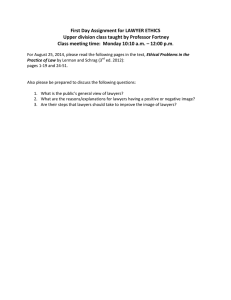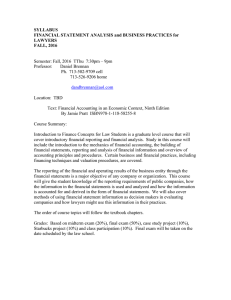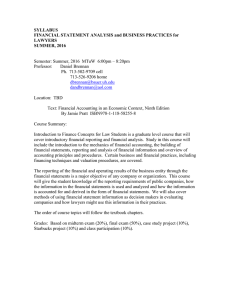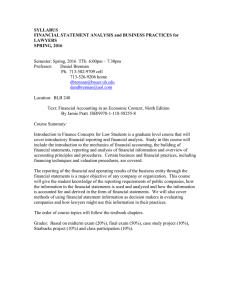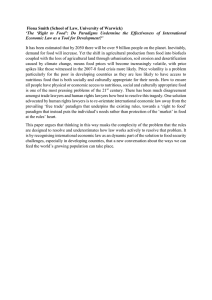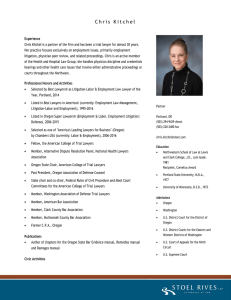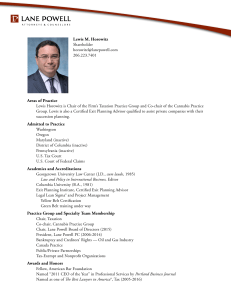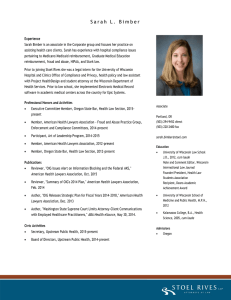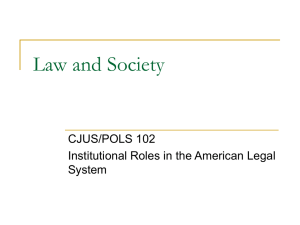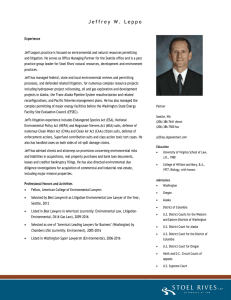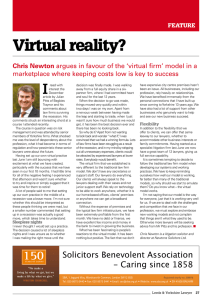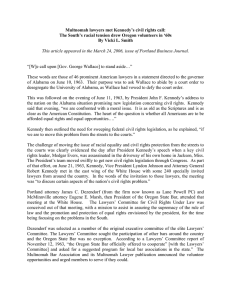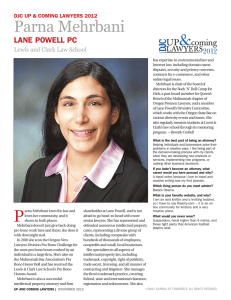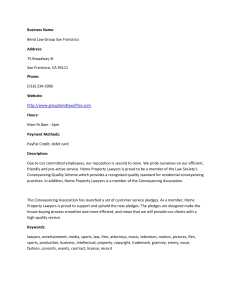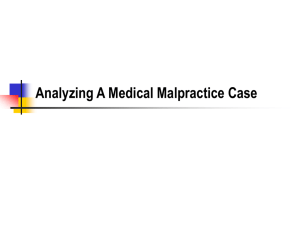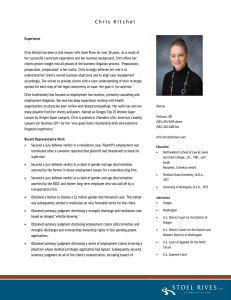This is a reprint of a Q & A article... Magazine as part of a special section on “staying on...
advertisement
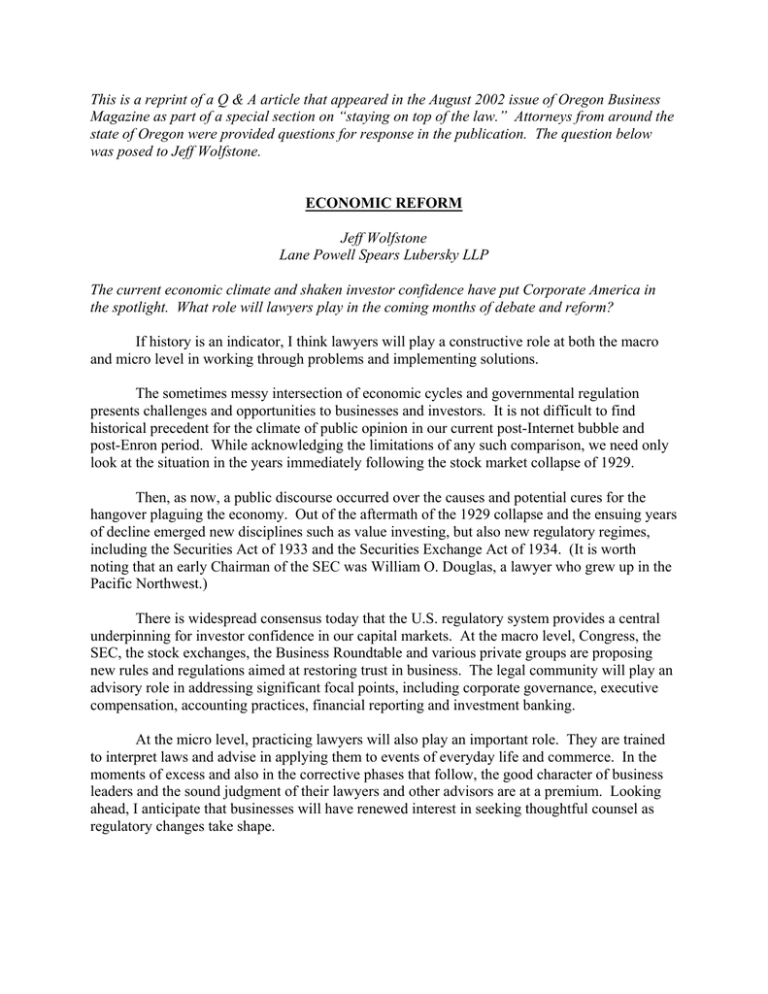
This is a reprint of a Q & A article that appeared in the August 2002 issue of Oregon Business Magazine as part of a special section on “staying on top of the law.” Attorneys from around the state of Oregon were provided questions for response in the publication. The question below was posed to Jeff Wolfstone. ECONOMIC REFORM Jeff Wolfstone Lane Powell Spears Lubersky LLP The current economic climate and shaken investor confidence have put Corporate America in the spotlight. What role will lawyers play in the coming months of debate and reform? If history is an indicator, I think lawyers will play a constructive role at both the macro and micro level in working through problems and implementing solutions. The sometimes messy intersection of economic cycles and governmental regulation presents challenges and opportunities to businesses and investors. It is not difficult to find historical precedent for the climate of public opinion in our current post-Internet bubble and post-Enron period. While acknowledging the limitations of any such comparison, we need only look at the situation in the years immediately following the stock market collapse of 1929. Then, as now, a public discourse occurred over the causes and potential cures for the hangover plaguing the economy. Out of the aftermath of the 1929 collapse and the ensuing years of decline emerged new disciplines such as value investing, but also new regulatory regimes, including the Securities Act of 1933 and the Securities Exchange Act of 1934. (It is worth noting that an early Chairman of the SEC was William O. Douglas, a lawyer who grew up in the Pacific Northwest.) There is widespread consensus today that the U.S. regulatory system provides a central underpinning for investor confidence in our capital markets. At the macro level, Congress, the SEC, the stock exchanges, the Business Roundtable and various private groups are proposing new rules and regulations aimed at restoring trust in business. The legal community will play an advisory role in addressing significant focal points, including corporate governance, executive compensation, accounting practices, financial reporting and investment banking. At the micro level, practicing lawyers will also play an important role. They are trained to interpret laws and advise in applying them to events of everyday life and commerce. In the moments of excess and also in the corrective phases that follow, the good character of business leaders and the sound judgment of their lawyers and other advisors are at a premium. Looking ahead, I anticipate that businesses will have renewed interest in seeking thoughtful counsel as regulatory changes take shape.
